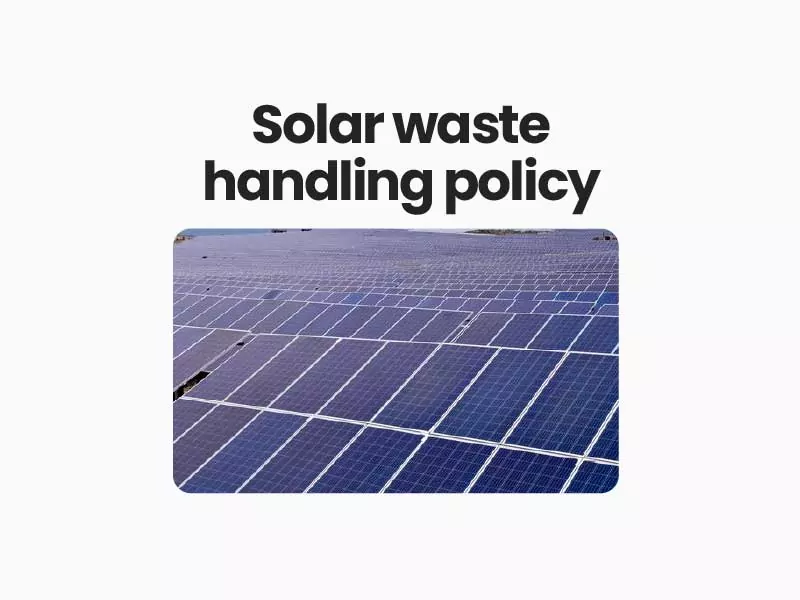Companion@360 → 7 Month programme to sharpen your writing skills → REGISTER NOW

Solar waste handling policy
According to the International Renewable Energy Agency (IRENA), India does not have a firm policy on managing waste that results from used solar panels or from the manufacturing process.
India has set a target of producing 100 GW of solar energy by 2022. The cumulative capacity of grid-connected solar photovoltaic(PV) installations is around 40 GW.
India’s solar manufacturing industry took off around 2010 most of the installed systems were new and early in their calendar life cycle and therefore unlikely to generate a large quantity of solar waste.
According to IRENA, it is estimated that the global photovoltaic waste will touch 78 million tonnes by 2050 with India expected to be one of the top five photovoltaic-waste creators.
However, India does not have a solar waste management policy and it currently considers solar waste a part of electronic waste and does not account for it separately.
A committee had been constituted under the chairmanship of the Secretary of the Ministry of Renewable Energy to propose an action plan to evolve a “circular economy” in solar panels, through the reuse/recycling of waste generated.
Currently, there is no commercial raw material recovery facility for solar e-waste operational in India.
But a pilot facility for solar panel recycling and material recovery has been set up by a private company in Gummidipoondi, Chennai, Tamil Nadu.
Solar Waste
Solar waste is the electronic waste generated by discarded solar panels.
Solar panels have an estimated life of 25 years. Further, solar PV modules could develop defects during the plant operations and be discarded even before their scheduled life span.
